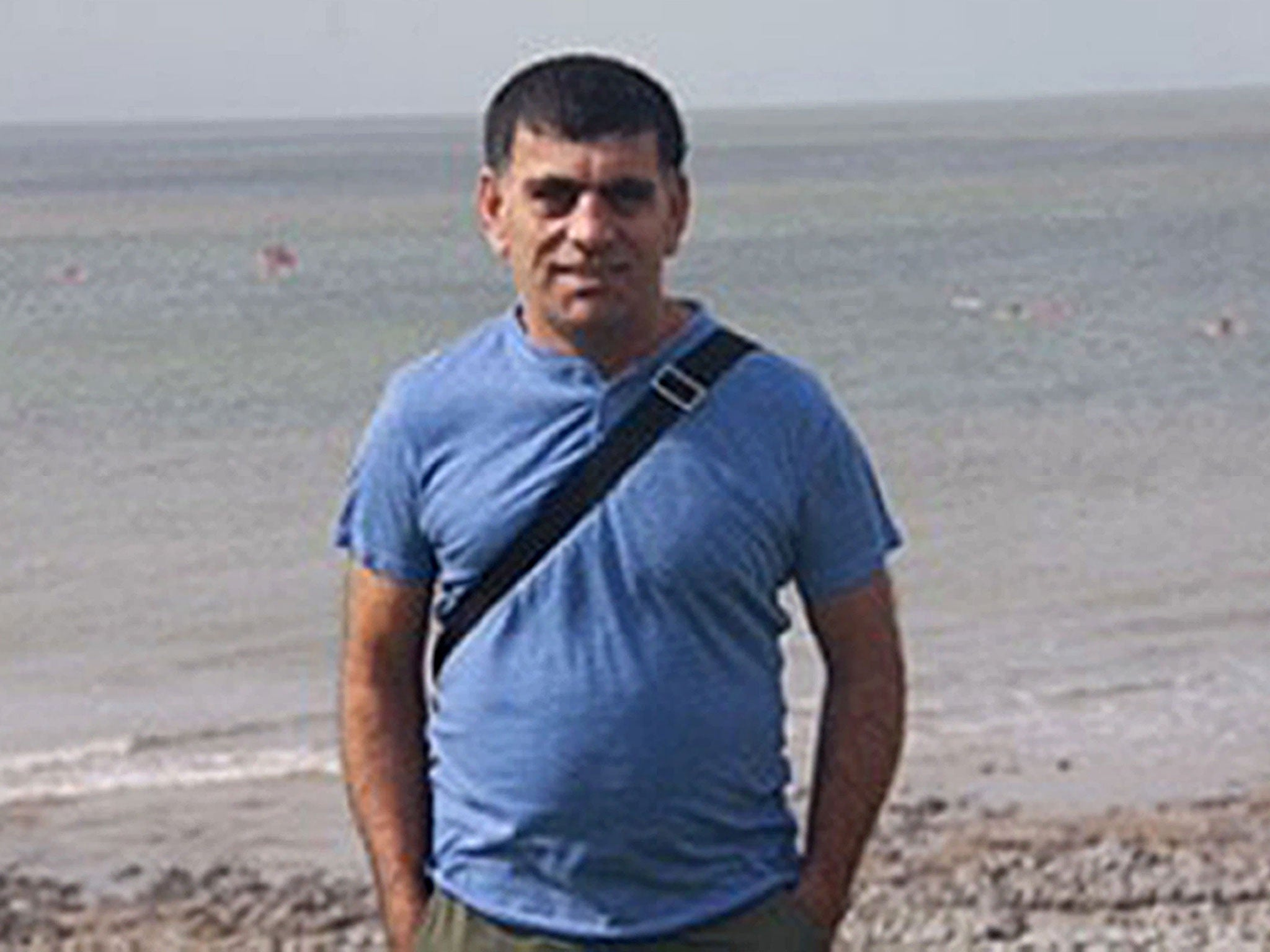Before he was murdered, this is what a disabled asylum seeker had to say about Britain
The removal of rights from disabled citizens is the price we are paying for our collective lack of resistance when the rights of asylum seekers were removed

Kamil Ahmad, a disabled man, fled his home in Iraqi Kurdistan after being tortured and imprisoned. He arrived in Bristol, England, in 2012 hoping to find peace and safety, but his application for asylum was refused. On July 7, 2016, Kamil was murdered. This was almost exactly three years after the murder of another disabled refugee from Iran, Bijan Ebrahimi, also in Bristol.
Official enquiries have taken place into the two murders, which were both found to be racially motivated. The serious case review into Kamil’s murder, published in June 2018, found that he was failed by many agencies and that the fatal assault on him “could have been avoided”. In light of his experience, it concluded: “It is timely for agencies in Bristol to consider whether an unconscious bias affects how they respond to the designation ‘refused’ (or ‘failed’) asylum seeker.”
Bijan had a more secure immigration situation than Kamil, as he had been granted refugee status. However, an enquiry found evidence of institutional racism which led to police assumptions that Bijan was to blame for the assaults he reported, and a failure to deal adequately with his complaints.
The precarious existence of asylum seekers, particularly those who are disabled and those whose cases have been refused, cannot simply be attributed to individual acts of hostility or to the oversight of individual agencies. Rather, it’s the result of deliberate government policy. The hostile environment for immigration is designed to be hostile – and this deliberate hostility is being rapidly extended to wider sections of the population.
Read more: Hostile environment: the UK government's draconian immigration policy explained
In an interview I carried out with Kamil in 2012 he spoke of his despair at the scale of injustice he was experiencing in Britain. He drew parallels between his life as a disabled refused asylum seeker in Britain and his time in Abu Ghuraib prison in Iraq. He was stuck, unable to return to the place he had fled, but with his basic rights denied in Britain.
Many people involved in the asylum sector describe it as disabling. Some arrive in the UK as disabled people, but others become disabled after they reach the UK. Several asylum seekers who I’ve interviewed as part of my research describe the system as psychological torture. And if a person is tortured then symptoms are inevitable.
The despair one person who I interviewed felt led him to jump off a bridge. This caused long-term physical injury alongside the ongoing mental distress. Another person developed serious back problems after being made destitute and having to sleep on park benches.
The denial of rights to asylum seekers, including disabled asylum seekers, in Britain has been increasing, under governments of all political colours. Since the 1951, the Convention on the Status of Refugees which protected the rights of refugees internationally, there have been 16 immigration acts in Britain, each reducing the rights of migrants further. These laws combine with what appears to be wider acceptance that some people deserve human rights but others do not. If our commitment to universal human rights is broken, it’s an easy step for rights to be removed from ever more people.
The denial of rights has been gradually extended from one group to another. The 1999 Immigration and Asylum Act removed the right for asylum seekers to receive mainstream benefits, including disability benefits. The support available to asylum seekers was set at below income support – the minimum deemed necessary for citizens – with no consideration of the costs associated with being disabled. People also lost the right to choose where to live and can be dispersed to areas of cheap housing, away from family, friends and support.
More than a decade later, the 2012 Welfare Reform Act drastically cut support available to all disabled citizens. It introduced the “bedroom tax”, which reduced housing benefit for people deemed to have an “extra” bedroom and forced some to move to to cheaper housing. This had disproportionate impact on those disabled people who require space for a carer or family member.
Together with wider cuts to services and support, this led a UN investigation to report “grave and systematic violations of the rights” of disabled people.
There have been many protests about the wider treatment of disabled people. Yet even now, similarities with policies imposed on disabled asylum seekers more than a decade earlier are rarely mentioned. It’s as if different standards are acceptable for asylum seekers compared with the broader citizenry.
I suggest that the removal of rights from disabled citizens is the price we are paying for our collective lack of resistance when the rights of asylum seekers were removed. If, back in 1999, we’d had a movement strong enough to resist the removal of rights from disabled asylum seekers, then perhaps similar policies would not have been imposed on disabled citizens more than a decade later.
Since these tragic events took place, there has been growing determination to address the injustice which Kamil and Bijan faced. An initiative to build a broader movement of solidarity in their honour has had the support of 18 different organisations, including disabled peoples groups, the asylum sector, trade unions, mosques and the University of Bath.
Rebecca Yeo is a PhD Candidate at the University of Bath
This article was originally published on The Conversation. Read the original article.
Join our commenting forum
Join thought-provoking conversations, follow other Independent readers and see their replies
Comments
Bookmark popover
Removed from bookmarks